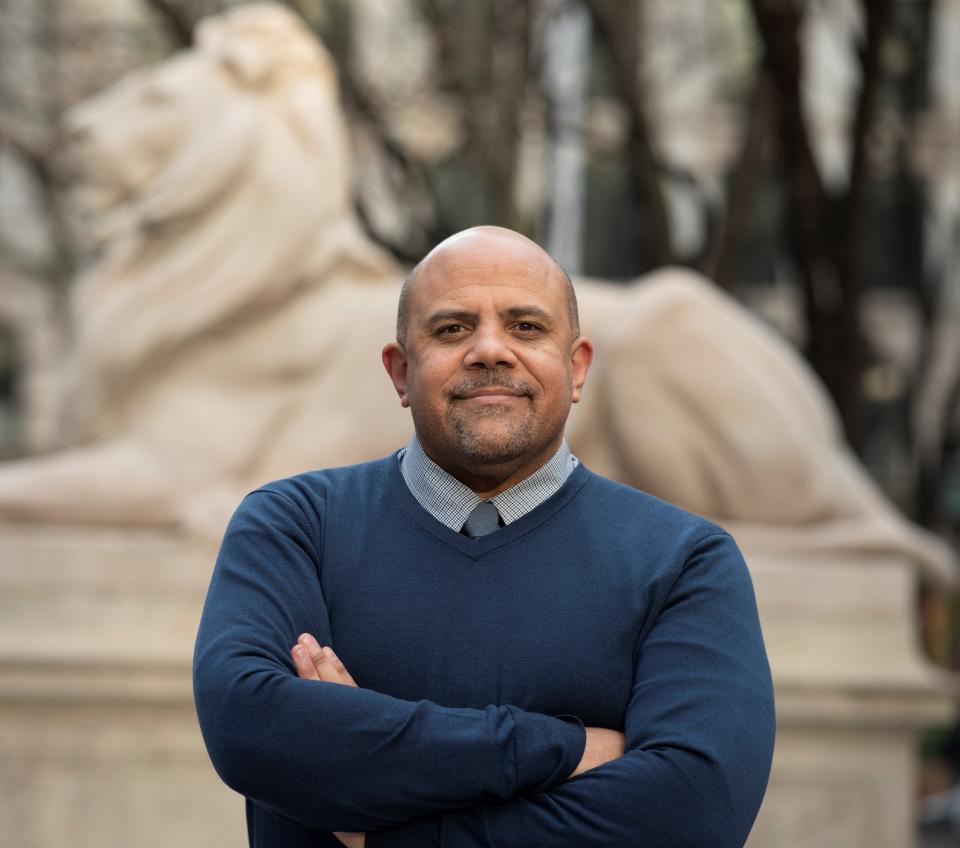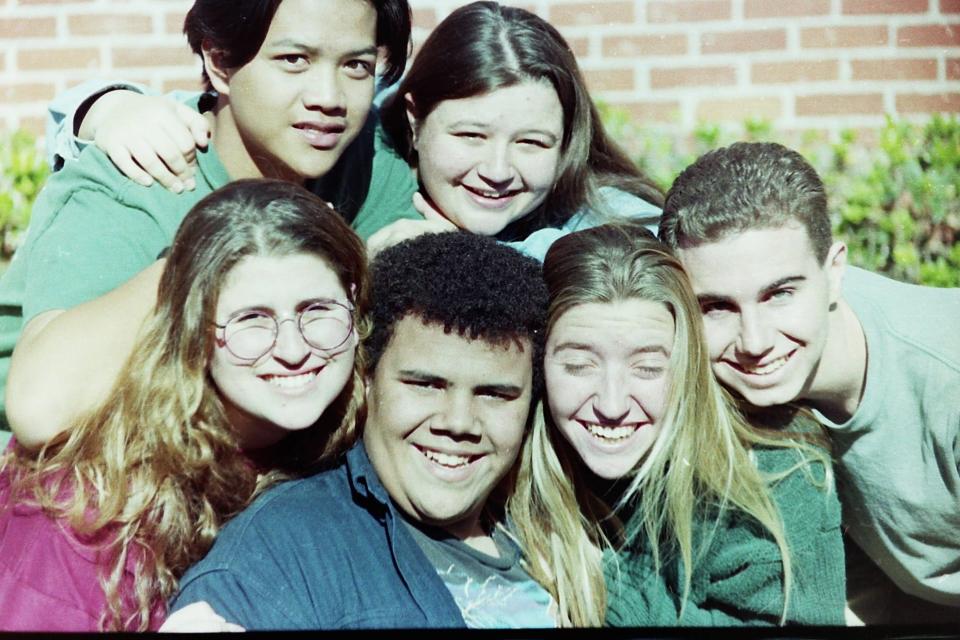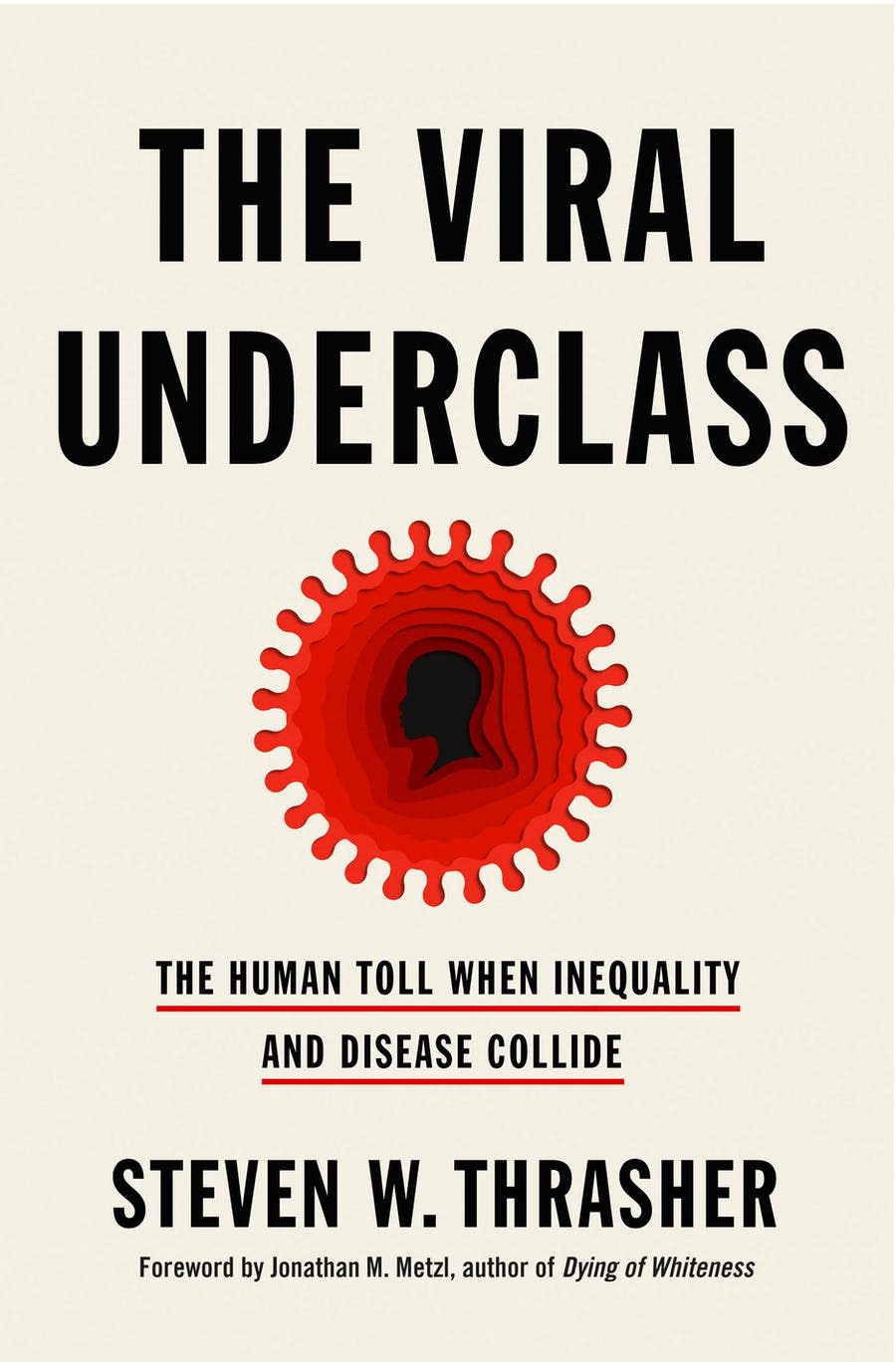'Viral Underclass': Steven Thrasher on how COVID-19, other viruses are linked to social inequality
- Oops!Something went wrong.Please try again later.
Author Steven Thrasher knew about AIDS before he knew about sex.
Though he did not come out as gay until his 20s, he remembered learning about Ryan White getting barred from middle school in the 1980s for having AIDS. As a child growing up in Oxnard, California, he watched his parents participate in anti-apartheid protests and learned at an early age about the importance of engaging in social issues.
"There were these non-normative queer ways of being that I understood from activism and life in Oxnard," Thrasher said.
Thrasher, 44, currently works as a journalism professor at Northwestern University's Medill School of Journalism in Illinois, serving as the inaugural Daniel H. Renberg Chair of social justice in reporting.
His new book, “The Viral Underclass: The Human Toll When Inequality and Disease Collide” (Celadon Books, 352 pp., out now), combines memoir and research to create a framework for understanding how viruses disproportionately affect populations, from HIV/AIDS to the COVID-19 pandemic.
'People have a right to history': New York prisons lift ban on book about Attica uprising

"I feel like I gravitated towards HIV and AIDS as a way to write about queer life,” Thrasher said.
Born in Ventura and raised in Oxnard, Thrasher is the son of former Oxnard High School teacher Bill Thrasher. While a student at the high school in the early 1990s, Thrasher helped revive the school newspaper, "The Buzz." It was his first foray into journalism.
"I wrote about entertainment and news stuff there," Thrasher recalled. "There was no internet, but we did put the paper together on InDesign."
Although Thrasher has always self-identified as a writer, his first professional writing job was in television. He graduated with a degree in film production and dramatic writing from New York University's Tisch School of the Arts, and his first job out of college was contributing research to "Saturday Night Live" for the "Weekend Update" segment.
5 must-read new books this week: Mohsin Hamid's 'Last White Man,' Amina Akhtar's 'Kismet'
He transitioned to journalism after working on various media projects, including the HBO film “The Laramie Project,” about Matthew Shepard, and NPR’s StoryCorps program. The Village Voice hired him in 2009 where he wrote primarily on prominent LGBTQ issues at the time: gay marriage and the "don’t ask, don’t tell" policy in the U.S. military.
During his time at the alt-weekly, he was struck by an interview he did at the Bronx LGBTQ Center where he learned how HIV-positive homeless LGBTQ residents, most of whom were people of color, would sell their HIV meds on the street for money. The conversation triggered a paradigm shift in Thrasher and the way he viewed LGBTQ issues.

"I didn't have that much of a sense at that time of how the HIV epidemic was ongoing, but I knew pretty quickly if you look at how it's playing out, you're seeing all of these terrible civil rights issues that have nothing to do with marriage and the military,” Thrasher said.
Thrasher was laid off from the Village Voice in 2012, weeks after being named Journalist of the Year by the National Lesbian and Gay Journalists Association. He continued to work as a freelance journalist while enrolled at NYU to get his doctorate in American studies, which he completed in 2019.
More: Stephen King to testify against longtime publisher Simon & Schuster
His Ph.D. thesis, which would later serve as a major part of “The Viral Underclass,” focused on how race intersected with the criminalization of HIV/AIDS, including the story of Michael Johnson, a Black man from Missouri who was sentenced to 30 years in prison for failing to disclose his HIV status to sexual partners. Johnson was later released on parole several years into his sentence.
Thrasher got the title “The Viral Underclass” from the last chapter of his dissertation. As he was preparing his proposal for turning it into a book, the COVID-19 pandemic arrived in the U.S.
A conversation with his book agent expanded the proposal to include the impact of COVID-19.

"She was like, I don't want you to write a flash-in-the-pan COVID book, but think about using this 'viral underclass' as an analytic to write about what you've learned about HIV and economics and criminalization of disease and use that to write about the pandemic," Thrasher said.
The book is divided into 12 chapters, each focused on a different social vector that results in unequal viral transmission. The chapters combine research and reporting with personal narratives drawn from relationships in Thrasher’s life, from his work with Johnson in Missouri to his friend Lorena Borjas, a transgender activist in New York who died from COVID-19 early in the pandemic. The result is a memoir of sorts that is different from what Thrasher initially anticipated.
“I felt like I wanted to be vulnerable because I hope that it allows readers to go into a vulnerable place within themselves," he said.
The release of Thrasher’s book coincides with another rising viral threat, monkeypox, and he already sees the United States falling into the same trappings he lays out in his book. He is critical of the lack of funding for public health and wellness initiatives, especially in comparison with the billions the U.S. has spent on the Russian war in Ukraine.
"Regardless of the nature of any particular virus, as long as a society's priorities are on those things, it's going to breed ill health," Thrasher said.
This article originally appeared on Ventura County Star: 'Viral Underclass': Steven Thrasher on how inequality worsens illness

